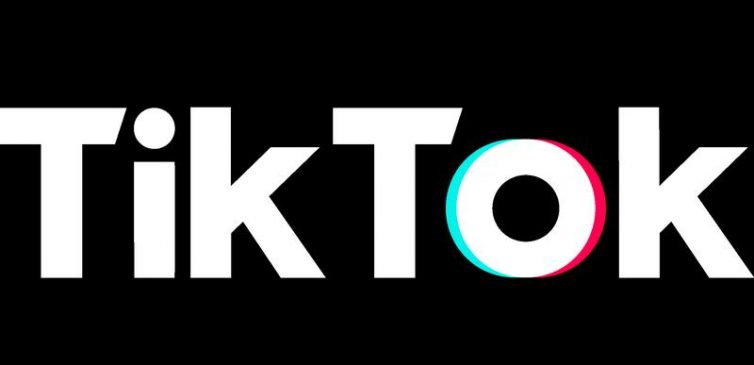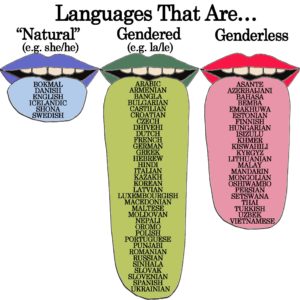
Move over Twitter, TikTok is the new kid on the block
Social media is toxic. From Twitter to Facebook, online discourse is at an all-time low with trolling, misinformation, and culture wars dictating the news cycle. Journalists are now in the firing line as a result. News outlets must appeal to the masses with the facts, wit, and self-awareness needed to survive this onslaught of fake news and vitriol. Enter TikTok.
From comedy routines to viral dances, younger millennials and zoomers create short video clips on the social media platform, mainly through lip syncs. An earlier incarnation of the app, Musical.ly, was bought by Chinese tech company ByteDance, who developed it into the TikTok we know and love today. Since February 2020, the app has an estimated 800 million monthly active users and has been downloaded 1.5 billion times; a built-in audience that journalists can take advantage of.
The Washington Post is a prime example of a publication that has successfully jumped onto the TikTok bandwagon. With their account amassing 383,000 subscribers and 19 million likes, the Amazon-owned newspaper is able to attract a younger audience, who otherwise would never have picked up The Post. Their irreverent coverage of this year’s Superbowl and the Democratic Party Primaries have been equally hilarious and endearing; and British newspapers have taken notice.
@washingtonpostYou got this, Drew ##newspaper♬ Taking Chances – Céline Dion
Francesco Zaffarano, senior social media editor at the Telegraph, has been involved in starting the paper’s TikTok account, which launched in January. Zaffarano claims the move to TikTok was done in order to “create a presence” on the platform. “TikTok is a place where we can reach younger audiences. We wanted to understand if that platform can be part of a broader strategy online, on social specifically. Right now, it’s one of the most popular places where young users are gathering so it makes total sense for us to find a way to talk to those users,” he says.
@thetelegraphFake health advice about the coronavirus is plaguing the internet. These conspiracy theories are crazy##coronavirus ##fakenews ##loop ##chinacoronavirus♬ Stop This Flame – Celeste
Zaffarano does not want to reach a specific target on TikTok, instead viewing the platform as ‘‘a matter of experimenting with a different way of storytelling’’. He adds: ‘‘We prefer to focus on the stories we want to tell the users. I think the second or third post we did was an explainer on coronavirus. It was basically the same content we had on our website, but we had to find a different way of explaining that story.”
Yara Silva, group head of social media at Reach Nationals, shares a similar viewpoint. In her role overseeing the social media footprints of numerous national publications, such as OK! Magazine and the Daily Mirror, Silva is aware of the impact TikTok is having on online outreach. “It’s certainly become a more serious focus in recent months because we can see that publisher content does work well there and that a younger audience is interested in us being on the app,” she says. “At first we were just dipping our toes in, but since we’ve been able to measure success there, it’s becoming more of a social strategy decision.
“We’re reaching an entirely different audience on TikTok that we don’t necessarily reach on other social platforms. Attracting Gen Z is a big focus for publishers in 2020 and TikTok is a key part of that. It’s a place for fun videos but there’s definitely an appetite for content that’s more educational or aspirational too – that’s what we’re aiming to provide on our Daily Mirror and OK! Magazine accounts.”
Sceptics may question whether this “fun” take on journalism is responsible, yet Silva remains certain that TikTok is an opportunity that is too good for publications to miss. “I think most publishers have the sense not to dismiss any new platforms before they test them out. You never know what’s going to be the next big thing and it’s good to build audiences where you can,” she explains.
Criticism has also been directed at ByteDance – the video-sharing app’s Chinese owners. While speaking at the Social 2030 conference in Silicon Valley earlier this year, Reddit co-founder Steve Huffman referred to TikTok as “spyware”. “I look at that app as fundamentally parasitic,” he said. “That it’s always listening, the fingerprinting technology they use is truly terrifying and I could not bring myself to install an app like that on my phone.”
ByteDance has yet to respond to these accusations. But, after the general public’s lack of response to the Facebook-Cambridge Analytica scandal, do people even care about their privacy on these apps? Journalists appear not to share Huffman’s concerns regarding TikTok, instead embracing it.
Sophia Smith Galer is a video journalist for the BBC’s World Service, and while her employers do not have a TikTok presence, she has over 45,000 followers and 80,000 likes on her personal account. Galer believes “a journalistic understanding of TikTok is vital” in two crucial ways. “Firstly, there are thousands of under-reported stories on there that people are making videos about and secondly, as a platform it shows us how to create content that will engage young audiences, especially those under 24,’’ she explains.
@sophiasmithgalerWhat should be my next story? ##journalism ##journalist ##fyp ##foryoupage ##story ##storytime ##tiktokuk ##women ##tiktok♬ original sound – sophiasmithgaler
According to Galer, she creates content based on important aspects of her life, including her journalism work, love of languages, and singing. ‘‘In order to come up with TikTok content you do need to spend hours a day on the platform. Your audience will quickly pick it up if you are slow to take on new trends or put out content that isn’t relevant or relatable,’’ said Galer.
TikTok’s appeal is based on its humour and creativity. For Generation Z, it is the last social media haven; a barricade which has yet to be broached by the flood of boomers who ruin any app they come across. While most social media platforms have been corrupted by toxicity, TikTok presents an opportunity for the younger generation to form their own identity and narratives. Twitter fundamentally changed the news cycle. Time will tell how TikTok will change it once more.
Want more? Check out some of XCityPlus’s other latest content here

















